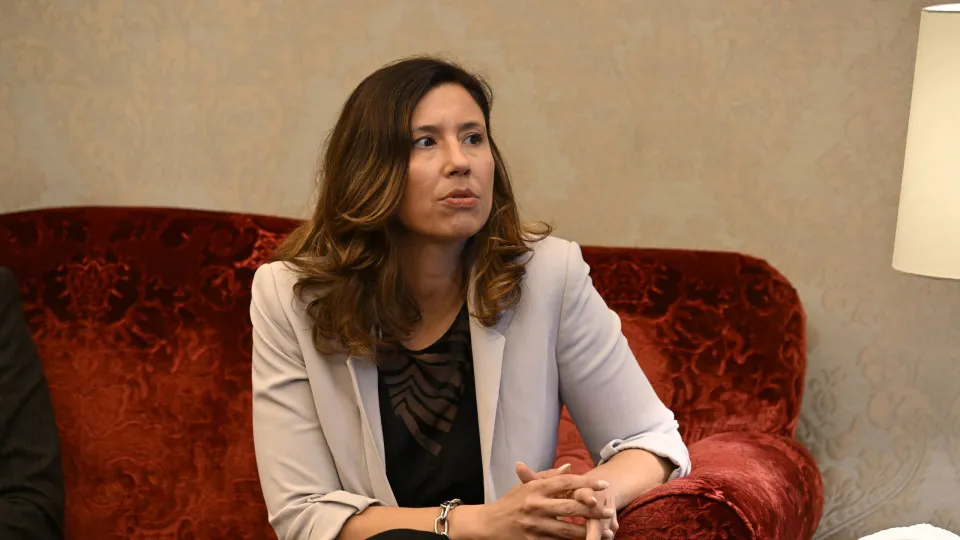
The National Reading Plan (PNL) will continue its operations under the newly established EDUQA, as will the School Library Network (RBE), with their projects proceeding independently and their institutional identities preserved. This announcement was made by the Secretary of State, Alexandre Homem Cristo, during the annual PNL conference at the Calouste Gulbenkian Foundation in Lisbon.
The Secretary of State for Education clarified that the government has never intended to terminate the PNL, and public concerns reflect the positive impact of the PNL’s efforts in Portuguese society.
“These concerns demonstrate the social recognition the PNL enjoys in Portuguese society, within schools, and among all who work around reading. It is a positive sign that can only be viewed favorably,” he stated.
The ministry’s reform aims to enhance its operations without dismantling effective programs but rather by continuing successful efforts and addressing areas that need improvement.
Christo referred to the extensive dispersal of institutional organizations that the current administration is consolidating into larger entities.
As part of the central government’s organizational and functional reform, the Educational Evaluation Institute (IAVE), the Directorate-General for Education (DGE), the PNL Mission Structure, and the RBE coordinating office were abolished.
The newly created Institute for Education, Quality and Evaluation (EDUQA) has now assumed the roles of these four entities, prompting concerns about the potential effects on two significant literacy-focused projects in a country with low reading and literacy rates.
Christo further noted that the reform is a transitional process rather than an instantaneous change. Although the establishment of EDUQA has been published and began to take effect throughout October, the transitional process involves “several weeks of coordination, and possibly up to another month or two.”
The goal is for this transition to be as smooth as possible, ensuring the continuation of current initiatives, as “the PNL is here to stay and will continue contributing to society and schools,” he reiterated.
Christo highlighted the need to identify investment opportunities that foster a greater interest in reading and engage readers.
He underscored the significant role that books play in personal, social, and academic development. Reading is also pivotal in integrating foreign students by broadening horizons and exposing them to different cultures.
Opening the conference, this year themed “Unlimited Interpretation,” PNL Commissioner Regina Duarte emphasized the program’s role as a collaborative national effort, engaging schools, libraries, municipalities, universities, publishers, authors, associations, and families.
Duarte explained that the PNL aimed to go beyond random activities, instead pursuing a regularly organized strategy based on evidence and with a tangible impact on schools and communities.
Key areas of action included promoting school reading through initiatives like “Ten Minutes a Day,” reading clubs, and legitimizing reading time within the school schedule, involving families and teachers, improving reading skills (interpreting, arguing, evaluating, and thinking critically), and ensuring training, access, and equity—all areas where Portugal has struggled.
Regarding outcomes, Duarte reported that the Reading Action Plan—encompassing 15 groups, 2,384 teachers, and 22,440 students—fostered cultural shifts in schools. Reading transitioned from an “occasional activity” to regular and valued time; school leader involvement increased, data and evaluation became central to pedagogical decisions, and student interest alongside library use grew.
“We’ve moved from hearing ‘students don’t like to read’ to ‘students are reading more,'” she highlighted.
The Commissioner reinforced the notion that reading involves understanding, questioning, arguing, and constructing meaning. She argued that reading is an exercise of intellectual freedom and civic responsibility, especially in an era overloaded with information, where forming critical readers is a democratic requirement.
Concluding her speech, Regina Duarte urged the preservation of the PNL’s legacy, stressing that it “does not belong to one team, but to the nation.” She advocated for the continued trust built with schools and libraries, listening to professionals in the field, and evidence-based decision-making. She emphasized the need for “freedom to innovate, always with public accountability.”




